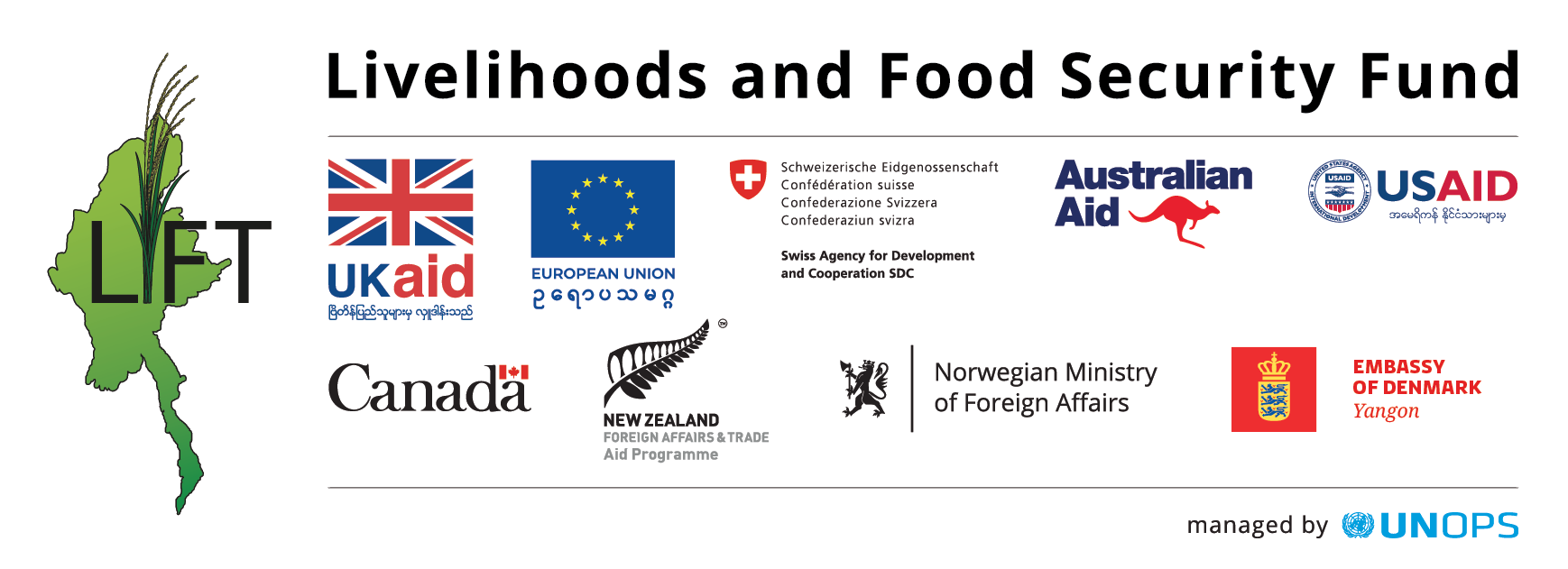
In the interests of knowledge sharing and to improve the design and implementation of future LIFT funded projects, the Fund Management Office recently organised two workshops on lessons coming out of projects implemented in the Delta.
"We've been active in the Delta since 2010, and since LIFT funds a good number of interconnected projects, we are in the position to share lessons and scale up more effectively," said Antoine Deligne, LIFT's Livelihoods and Food Security Specialist.
The workshops took place in Yangon (October 3rd in English and Myanmar language) and Bogale (October 1st in Myanmar language) and were attended by representatives from 15 implementing partners, LIFT donors and officials from the Ministry of Agriculture and Irrigation. For those who couldn't attend, powerpoint presentations are available below.
Participants focused on four thematic groups:
- Agriculture Production & Post Harvest
- Integrating Farmers in the Rice Value Chain
- Making Income Generating Activities become Profitable Businesses
- Organizing Collective Services
Attendees shared their analysis on successes and failures through presentations, question and answer sessions, roundtable and group discussions.
Interest was particularly focused on new post-harvest technologies, production and marketing of energy efficient stoves, benefits and challenges for aquaculture and eel farming. Participants also shared their experience of hire-purchase models, market price information and agricultural finance. Other sessions dealt with the advantages and disadvantages of collective approaches such as becoming a registered cooperative group or establishing village revolving funds.
"It was a very useful workshop," said Jana Koerner, a programme officer with Welthungerhilfe, who attended the session in Yangon. "Not only the process of preparing and reflecting on lessons, but also the personal contact with other implementing partners and learning about their activities. The workshop prompted us to visit another LIFT funded project in the hope that we can replicate its results."
Learning from these workshops is being compiled in a document that will be used towards the design of a future LIFT programme for the Delta.
Please browse the powerpoints below:
Introducing the lessons: what challenges LIFT has identified? (LIFT)
Lessons learned and good practices (LEAD)
Double Cropping in Brackish and Salt Intrusion Areas (Proximity Designs)
Rice Quality Seed Production & Marketing (Radanar Ayar)
Lesson Learned on Contract Farming (MercyCorps)
Lesson Learned on Upgrade Of Rice Mill (MercyCorps, WHH)
PGMF Credit to Agriculture & Participatory Approach in LIFT delta II programme (PACT)
Farmer-managed Financial Service in Delta (GRET, WHH)
Current Situation Of Aquaculture Ponds in Labutta (ADRA)
Lesson Learned From Aquaculture Approach In Labutta (ADRA)
Introduction to Quality Fuel Efficient Stove Production and Marketing (MSN)
Improving Fishery Governance System (Oxfam – Network Activities Group (NAG))
Good Practices on Home Gardening Model and Eel farming Model (Thadar consortium)
Hire Purchase (Farmer-Managed Financial Service) (GRET)
Approach in Agriculture Cooperative formation (AVIS)
Village Revolving Fund (Welt Hunger Hilfe)
Good practices on Social Protection Model (Thadar consortium)


